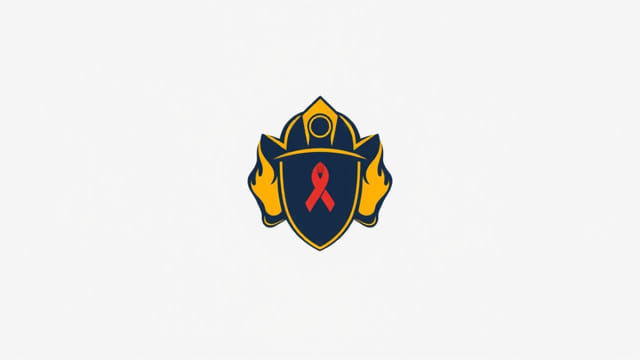Firefighters face countless dangers in their line of duty, including exposure to hazardous smoke, toxic chemicals, and carcinogenic substances. Over the years, growing evidence has shown a strong link between firefighting and certain types of cancer. This growing concern led to the establishment of the Firefighter Cancer Presumption Law in several jurisdictions. These laws are designed to help firefighters receive fair compensation and support when diagnosed with cancers presumed to be caused by their service. Understanding how this law works, its scope, and who it protects is crucial for firefighters, their families, and employers alike.
What Is the Firefighter Cancer Presumption Law?
The Firefighter Cancer Presumption Law is a legal statute that presumes certain types of cancer developed by firefighters were caused by exposures during their professional duties. This legal presumption allows firefighters to qualify for workers’ compensation benefits without needing to prove a direct link between the cancer and their work.
These laws typically list specific types of cancer presumed to be occupational, meaning they are assumed to have been caused by job-related exposures unless proven otherwise by the employer or insurer. The intent is to streamline the compensation process and reduce the burden of proof for affected firefighters.
Purpose of the Presumption Law
The main purpose of the Firefighter Cancer Presumption Law is to protect those who put their lives at risk while serving the public. Firefighters often encounter environments contaminated with asbestos, diesel exhaust, benzene, formaldehyde, and other cancer-causing agents. The law acknowledges these health hazards and aims to:
- Provide financial relief through workers’ compensation
- Support long-term treatment and medical care
- Reduce litigation and claim denials for work-related illnesses
- Honor the risks firefighters face daily
Cancers Covered Under Presumption Laws
The specific cancers covered by firefighter cancer presumption laws vary from state to state or country to country. However, there are some common types typically recognized:
- Leukemia
- Non-Hodgkin’s lymphoma
- Multiple myeloma
- Lung cancer (in non-smokers)
- Brain cancer
- Bladder cancer
- Kidney cancer
- Testicular cancer
- Prostate cancer (in some jurisdictions)
- Colorectal cancer
Each jurisdiction may require the firefighter to meet certain conditions, such as having served a specific number of years or having undergone medical examinations prior to employment, to qualify for the presumption.
Eligibility Requirements
To benefit from the presumption law, firefighters usually need to satisfy particular eligibility criteria. These requirements help ensure that claims are connected to occupational exposure and are not coincidental or unrelated.
- Minimum years of service (often between 5 and 10 years)
- Diagnosis of covered cancer within a certain time after service ends
- No prior history of the cancer before employment as a firefighter
- Proof of full-time employment with a fire department
In some areas, volunteer firefighters may also be covered, although the eligibility standards might differ. Periodic physical examinations and medical records can be essential in validating eligibility.
Burden of Proof and Rebuttal
One of the law’s key advantages is the shift of the burden of proof. Traditionally, the burden is on the employee to prove the illness was job-related. Under presumption laws, however, the burden shifts to the employer or insurer to disprove the connection. This makes it significantly easier for firefighters to access compensation and treatment.
However, it is possible for employers to challenge claims. They may present evidence that the cancer was due to non-occupational factors, such as tobacco use or family medical history. These rebuttals can be complicated and often require expert testimony or detailed health assessments.
Legal and Financial Implications
The financial support provided under this law includes medical expenses, disability payments, wage replacement, and sometimes death benefits for surviving family members. Without this legal protection, many firefighters would struggle with out-of-pocket costs for treatments, loss of income, or lengthy legal battles.
States that have adopted comprehensive firefighter cancer presumption laws have seen improvements in claim outcomes and higher rates of approval. This legal framework sends a message that governments recognize the health risks firefighters endure and are committed to supporting them.
Criticisms and Limitations
While the firefighter cancer presumption law offers vital protections, it is not without criticism. Some critics argue that the laws can place heavy financial burdens on municipalities and insurance funds. Others claim the scope of covered cancers may be too narrow or that the laws don’t adequately include volunteer or part-time firefighters.
Additionally, proving eligibility and dealing with rebuttals can still be a challenge in some areas. Not all jurisdictions have adopted presumption laws, leaving many firefighters unprotected.
Ongoing Developments
As scientific research continues to uncover more connections between firefighting and cancer, many lawmakers are pushing to expand and strengthen these laws. There is growing momentum for:
- Including more types of cancer under presumption coverage
- Reducing service time requirements
- Extending protection to volunteer firefighters
- Providing better education and preventative resources
Continued advocacy and public awareness are essential for ensuring comprehensive coverage and support for all firefighting personnel.
The Firefighter Cancer Presumption Law represents an important step toward justice and support for those who risk their lives to protect others. By acknowledging the serious health consequences of firefighting and reducing the legal hurdles to compensation, these laws ensure that affected firefighters and their families are not left to face medical and financial challenges alone. As more jurisdictions adopt or expand these laws, the hope is that all firefighters regardless of employment status can be protected and cared for if they develop work-related cancer. The battle may be far from over, but the law stands as a symbol of commitment to firefighter health and safety.
